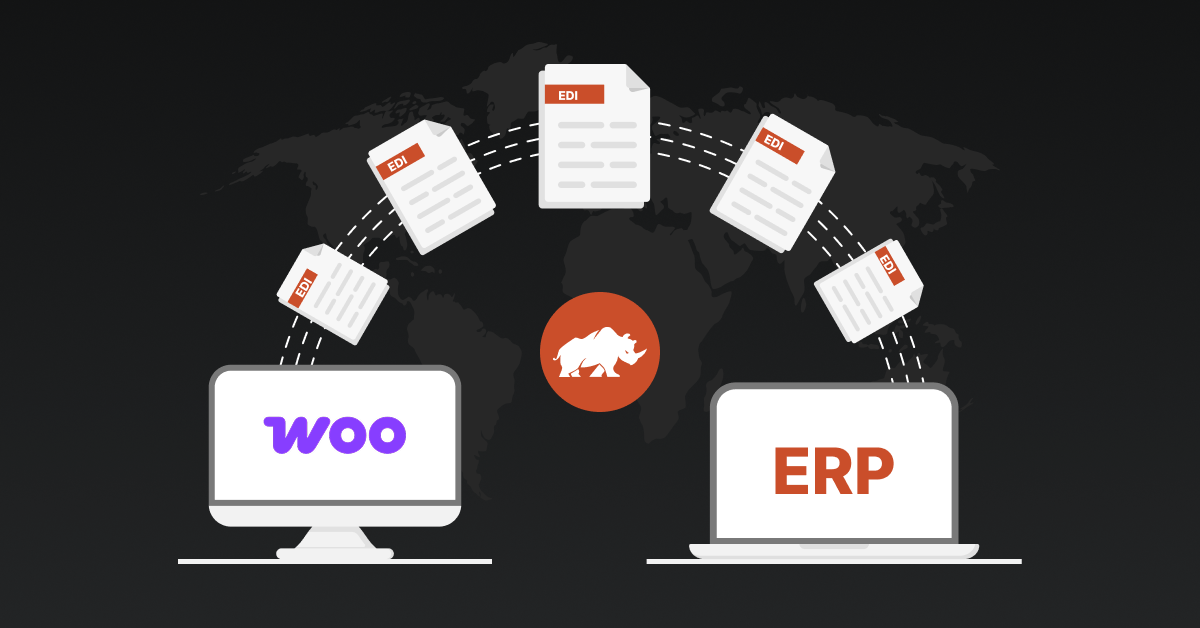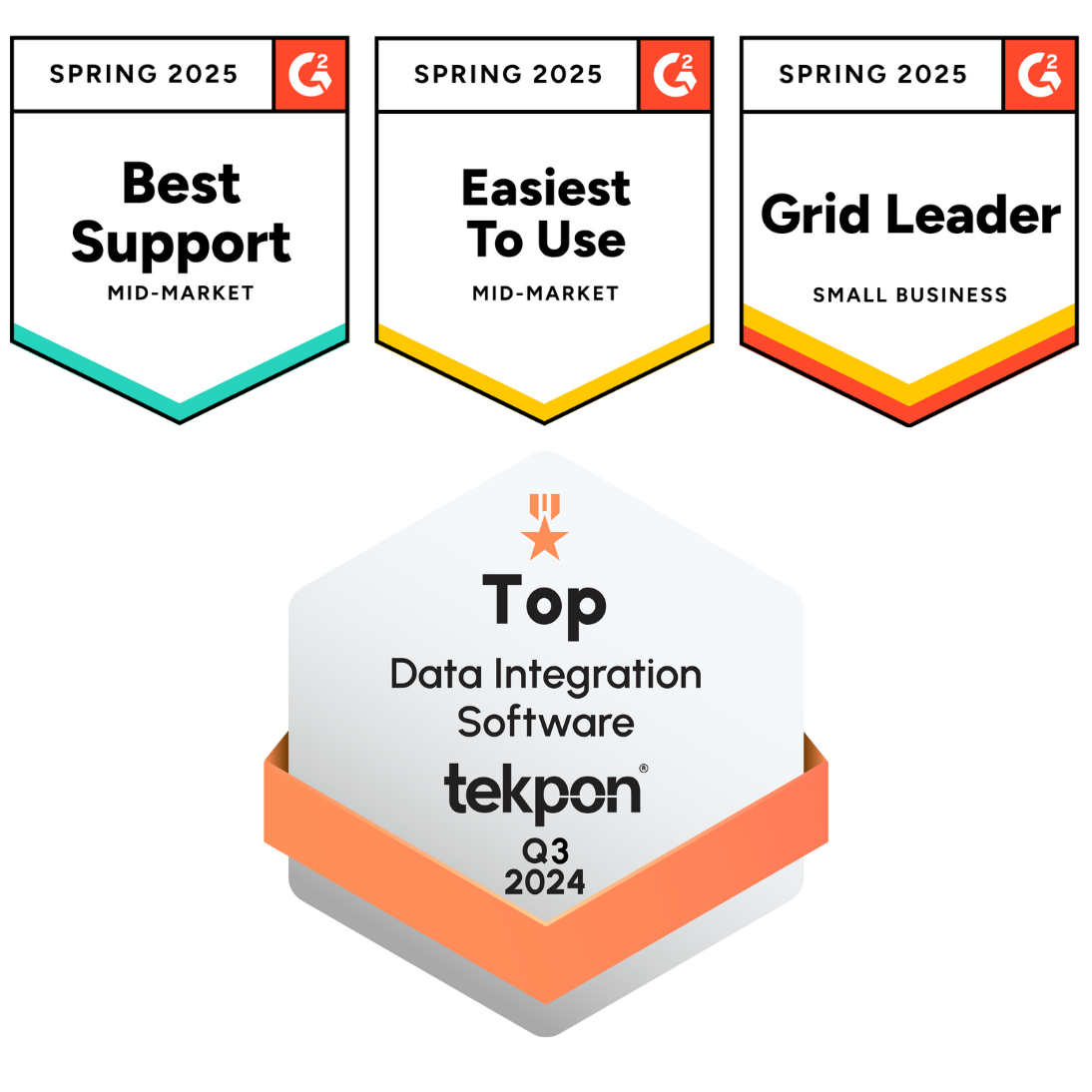A well-chosen EDI software is more than an operational tool, it becomes an essential tool that streamlines business processes, accelerates transaction cycles, improves data flows, and positions a small business owner for sustainable growth.
This guide provides a complete look at EDI for small businesses, including evaluation methodology, a detailed analysis of top EDI platforms, key considerations, and insights for selecting the right EDI service provider.
Why Do Small Businesses Need EDI?
Smaller businesses often struggle with manual processes such as manual data entry, delayed invoicing, and shipment errors caused by human oversight. For a small company with limited resources, these issues can quickly lead to higher costs and lost business opportunities.
EDI systems address these challenges by automating the data entry and flow of documents to minimize human error. EDI also helps ensuring standardized formats across all business partners, including meeting partner requirements. Many larger companies mandate that smaller companies be EDI-compliant.
Additional advantages include also help cutting down order-to-cash cycles from days to hours, and allowing small businesses to grow without proportional increases in labor costs or IT complexity.
For small businesses with unique needs, EDI software is a powerful tool that ensures operational efficiency, seamless integration, and ongoing support.
Key Challenges Small Businesses Face With EDI
Before choosing an EDI system, small businesses should be aware of common challenges:
- Initial Setup Complexity: Traditional EDI systems can be a complex process, requiring a knowledgeable team with Enterprise Resource Planning (ERP) expertise.
- Integration Needs: Aligning data flow across ERP, accounting, and eCommerce platforms can be time-consuming.
- Cost Constraints: Subscription plans, transaction fees, and integration costs often create higher costs for smaller businesses compared to larger companies.
- Limited IT Expertise: Smaller companies may lack a team experienced in EDI implementation, data security, or global compliance standards.
- Trading Partner Demands: Many new partners or larger companies enforce strict requirements, forcing smaller businesses to act quickly to stay EDI-compliant.
Studies show that SMBs who invest in the right EDI service providers can overcome these challenges and unlock new business opportunities.
Methodology: How We Evaluated EDI Solutions
We evaluated top EDI platforms and EDI service providers using the following criteria:
- How quickly a smaller business can set up an EDI solution with minimal data entry and limited resources.
- Whether the system adapts to new partners and larger companies as business grows.
- Compatibility with ERP, accounting, and online marketplace platforms.
- Ensures data security and adherence to industry standards.
- Transparent plans that avoid high costs while meeting specific needs of SMBs.
- Ongoing support, demos, and onboarding assistance from a knowledgeable team.
This evaluation ensures our recommended EDI solutions are not only practical but also a powerful tool for SMB success.
Top Vendors: EDI for Small Businesses
1. DCKAP Integrator
DCKAP Integrator is a versatile EDI and API integration platform designed to simplify data exchange for growing businesses. It enables seamless connectivity between ERP, CRM, eCommerce, and supply chain systems, ensuring the smooth flow of orders, invoices, inventory updates, and other business-critical data.
With its intuitive interface and automation features, the platform reduces manual work, eliminates data silos, and improves accuracy across operations. DCKAP Integrator is especially valuable for small and medium-sized businesses that need scalable, affordable, and easy-to-manage integration solutions.
Pros:
- Capable of processing EDI transactions and integrating with the ERP and other systems like CRM, PIM, and more.
- Full mapping, on-boarding of partners, and easily add new ones as needed easily.
- Reduces manual processes, data entry errors, and labor costs.
Cons:
- Smaller global network compared to traditional EDI systems.
Best For:
Distributors and manufacturers seeking a cost-effective, cloud-based EDI solution tailored to their unique needs that also allows seamless data flow to their ERP and other key systems.
2. SPS Commerce
SPS Commerce is a leading cloud-based EDI solution trusted by thousands of retailers, suppliers, and distributors worldwide. It simplifies electronic data interchange by automating order processing, shipping, invoicing, and compliance tasks, making it easier for businesses to meet retailer requirements.
With its vast retail network, SPS Commerce offers fast partner onboarding, real-time visibility into transactions, and strong support services, making it an attractive choice for companies seeking scalability and reliability in their supply chain operations.
Pros:
- Ideal for retailers.
- Cloud-based EDI solution, requiring no heavy IT setup.
- Real-time visibility into shipments and data flows.
Cons:
- Higher costs may impact small companies with limited resources.
- Limited customization.
Best For:
Small businesses selling to large corporations like Walmart or Target, looking for operational efficiency and reduced manual processes.
Also see: EDI Integrations Explained [Steps, Types and Benefits]
3. TrueCommerce
TrueCommerce delivers a comprehensive EDI platform that connects businesses to their entire supply chain ecosystem. It goes beyond basic EDI by offering integration with ERP, accounting, and eCommerce systems, giving companies a unified view of orders, inventory, and logistics.
With tools for order management, supplier enablement, and real-time visibility, TrueCommerce helps organizations improve efficiency and responsiveness. Its flexibility in supporting both traditional EDI and modern data formats makes it suitable for businesses of all sizes looking for streamlined operations.
Pros:
- Cloud-hosted accessibility to a vast number of trading partners.
- Managed services to reduce manual processes and labor costs.
- Scalable for new partners and growing businesses.
Cons:
- Can be a complex process for smaller businesses with simple models.
Best For: Small business owners seeking end-to-end automation and ongoing support.
4. Namtek Consulting
EDI2XML by Namtek Consulting simplifies electronic data exchange by converting complex EDI documents into user-friendly XML or JSON formats.
EDI2XML is particularly beneficial for small and medium-sized businesses that want to adopt EDI while keeping costs and technical complexity low. By reducing the learning curve, it empowers companies to achieve compliance and efficiency quickly.
Pros:
- Affordable for smaller companies with limited resources.
- Reduces manual data entry and simplifies data flow.
Cons:
- Smaller trading partner network.
Best For: Small businesses looking for cost-effective EDI software as an essential tool to reduce errors.
5. Orderful
Orderful is an API-first EDI platform built for speed and simplicity. It streamlines partner onboarding, reducing timelines from months to days, and eliminates the need for businesses to manage EDI infrastructure internally.
With real-time validation, Orderful ensures transactions meet partner requirements before they are sent, lowering the risk of costly errors. Its modern, developer-friendly approach makes it an excellent choice for companies that want to accelerate supply chain integration while maintaining flexibility and scalability.
Pros:
- Seamless connection with new partners.
- Transparent pricing structure.
- Vendor onboarding in nine days
Cons:
- Requires technical knowledge from the team.
Best For:
Tech-savvy small companies aiming for operational efficiency and real-time visibility into business processes.
How to Choose the Right EDI Partner?
Here are some tips to choose the right EDI partner for your business:
- Assess your business partners’ specific needs and confirm compliance requirements.
- Review transaction volume to avoid high costs in the future.
- Ensure compatibility with ERP and online marketplace platforms.
- Choose a knowledgeable team that offers ongoing support and demos.
- Select the right EDI service provider that balances cost, scalability, and operational efficiency.
Future of EDI in Small Businesses
Cloud-based EDI solutions are transforming how smaller businesses connect with larger companies and new partners. The future promises:
- Faster onboarding and EDI implementation.
- Real-time analytics for shipments and customers.
- Lower labor costs through reduced manual data entry.
- Stronger data security for evolving business models.
With the right EDI service provider, SMBs can replace traditional EDI systems with scalable, modern platforms—turning EDI into a powerful tool for growth.
Conclusion
By working with knowledgeable teams, prioritizing operational efficiency, and choosing the right EDI service provider, SMBs can achieve success, strengthen business partner relationships, and future-proof their business model.
Next Steps for SMBs:
- Start with a demo or pilot project involving one or two business partners.
- Train your team on EDI workflows, data entry, and compliance.
- Continuously monitor performance and adjust your system as business grows.
With platforms like DCKAP Integrator, a small business owner can achieve an affordable, smooth transition into automated EDI processes, unlocking efficiency, scalability, and long-term success on behalf of their customers and business partners.
Frequently Asked Questions
What is EDI and why is it important for businesses?
EDI (Electronic Data Interchange) is the digital exchange of business documents such as purchase orders, invoices, and shipping notices between trading partners. It helps businesses save time, reduce manual errors, and improve supply chain efficiency.
How do EDI integration platforms benefit small and mid-sized businesses?
EDI platforms simplify data exchange by automating document flow between systems. For small and mid-sized businesses, this means faster onboarding with retailers, improved order accuracy, and fewer IT headaches when compared to building custom integrations from scratch.
What is the difference between API and EDI integration?
EDI focuses on standardized document formats for B2B communication, while APIs allow real-time data exchange across applications. Many modern platforms, like Cleo Integration Cloud and DCKAP Integrator, now combine both approaches for maximum flexibility.
How do I choose the right EDI solution for my company?
When choosing an EDI solution, consider scalability, ease of onboarding trading partners, compliance with retail standards, integration with your ERP or eCommerce platform, and the level of support offered by the vendor.
Why is DCKAP Integrator a good choice for small businesses?
DCKAP Integrator offers a flexible, API-driven platform that helps smaller businesses manage both EDI and non-EDI integrations with ease. Its focus on automation, customization, and scalability makes it an affordable and future-proof option. It supports both EDI transmissions





